The GLO Virtual Seminar Series has been established in 2020 with a frequency of one event per month as a regular GLO activity. The seminars are:

- Chaired by Viola Angelini (University of Groningen, Netherlands, & GLO).
- Matloob Piracha, Seminar Chair until September 2025.
- On a Thursday, 1.00 pm – 02.00 pm BST (London time), unless otherwise stated. ONE HOUR.
- It is an internal seminar open to all GLO Fellows and Affiliates and by special invitation. Free to attend (no fees).
Program
Sydney, Beijing, Guangzhou, Hanoi, Bangkok, New Delhi, Baku, Kyiv, Istanbul, Athens, Berlin, Brussels, London (1 pm UK time), Tunis, Kigali, Cape Town, Washington DC, Santiago de Chile ………
Time Zone Converter
- November 5, 2026: Helena Fornwagner (University of Exeter)
- September 3, 2026: NN
- August 6, 2026: NN
- July 2, 2026: Claudia Senik (Paris School of Economics)
- June 4, 2026: Sunčica Vujić (University of Antwerp)
- May 7, 2026: Jim Been (Leiden University)
- April 2, 2026: Damian Clarke (Universidad de Chile)
- March 5, 2026: Judit Vall Castelló (Universitat de Barcelona)
NEXT:
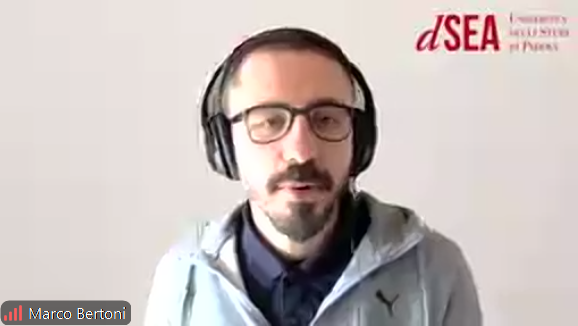
February 5, 2026: Marco Bertoni (University of Padua & GLO)
Policy Impacts are in the Eye of the Beholder: Experimental Evidence from Structural Reforms in Italy
(with Paolo Falco, Luigi Guiso, Tullio Jappelli and Roberto Nisticò)
Past seminars
- January 8, 2026: Daniela Andrén (Örebro University & GLO)
Video of the event
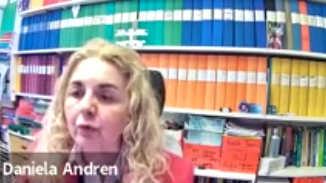
Immigration, Partnership Dynamics and Welfare Persistence
(with Thomas Andrén & Martin Kahanec)
*****
- December 4, 2025: Olga Stoddard (Brigham Young University & GLO)

The Visible Costs of Invisible Household Labor
*****
- November 6, 2025: Daphne Nicolitsas (University of Crete & GLO)
Video of the event
Chair of this event: Agnieszka Postepska (University of Groningen & GLO)

Fairness and life satisfaction – a look at the mechanisms behind the impact of one on the other
*****
- October 2, 2025: Mathilde Maurel (CNRS-University of Paris & GLO)
Video of the event
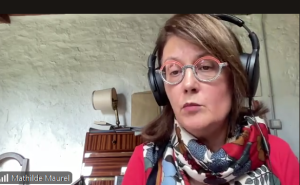
Internet use and understanding democracy in Africa
Also: GLO Discussion Paper No. 1571
Internet Use and understanding democracy in Africa – Download PDF
by Maurel, Mathilde & Pernet, Thomas
*****
- September 4, 2025: Stephen Drinkwater (University of Roehampton & GLO)
Video of the event
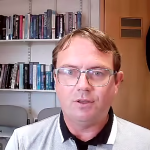
Differences in Schooling Attendance and Modes of Instruction Amongst Ukrainian Refugee Children: A Cross National Study
(joint with Cynthia Bansak)
*****
- August 7, 2025: Bianca Balsimelli Ghelli (Università di Modena e Reggio Emilia & GLO) Video of the event

The impact of citizenship on intermarriage: evidence from Italy
(with Giovanni Gallo)
*****
- July 3, 2025: Matija Kovacic (University of Venice and GLO)
Video of the event

What women want. Historical roots of women’s preferences for STEM occupations
(with Cristina Elisa Orso)
*****
- June 5, 2025: Max Tani (UNSW Canberra and GLO)
Video of the event

The role of business visits in fostering R&D investment
(with Marco Vivarelli and Mariacristina Piva)
*****
- May 8, 2025: Christos Kollias (University of Thessaly and GLO)
Video of the event

The Russian Invasion of Ukraine and European Citizens’ Trust in the Armed Forces
(with Athina Economou)
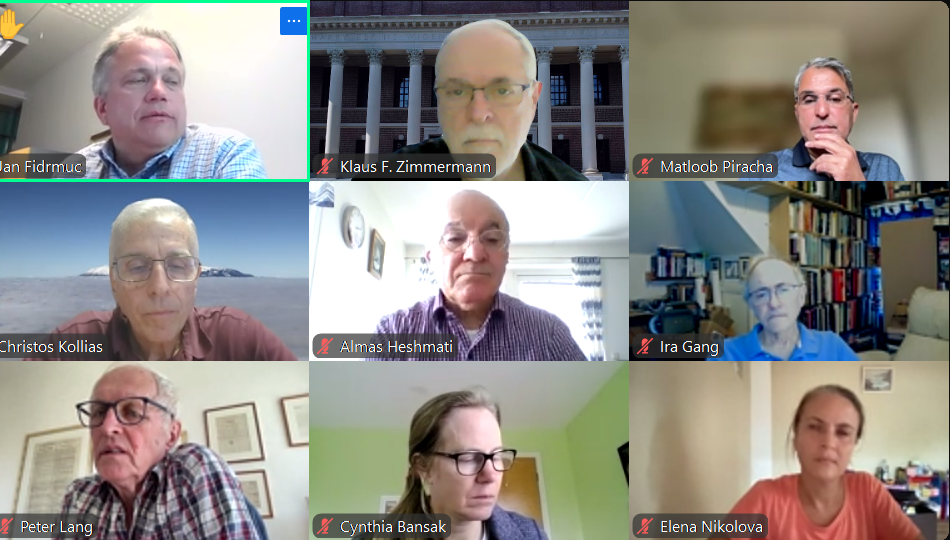
*****
- April 3, 2025: Luca Fumarco (Masaryk University and GLO)
Video of the event

(un)Effectiveness of the Temporary Protection EU Act.
A Study with Ukrainian Refugees Job Applicants
(with Patrick Button and Stepan Mikula)
*****
- March 6, 2025: Viola Angelini (University of Groningen and GLO)
Video of the event
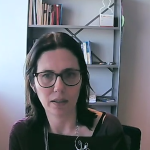
Do stronger employer responsibilities enhance work accommodation for sick-listed workers? Evidence from a Dutch reform
(with Laura Jansen, Max Groneck and Raun van Ooijen)
*****
- February 6, 2025: Sofoklis Goulas (Brookings Institution and GLO)
Video of the event

The Value of Remote Work: A Correspondence Experiment on Tutors
*****
- January 9, 2025: Gylfi Zoega (University of Iceland and GLO)
Video of the event
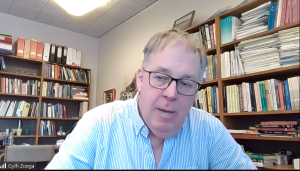
Mortgage Relief and Household Spending. Evidence from a Natural Experiment
(with Sigurdur P. Ólafsson and Arnaldur Stefánsson)
*****
- December 5, 2024: Eva Sierminska (LISER & GLO)
Video of the event

Inequality in Economics as a Profession
(with Karan Singhal)
*****
- November 7, 2024: Mahreen Mahmud (University of Exeter & GLO)
Video of the event
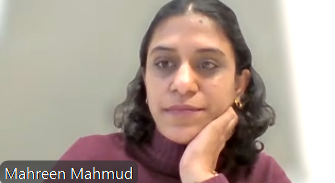
Wage Subsidies to Promote Female Hiring: Evidence from Pakistan
(with Maurizio Bussolo, Jean Lee, Nayantara Sarma & Anaise Williams)
*****
- October 3, 2024: Sebastian Gallegos (UAI Business School, Chile & GLO)
Video of the event
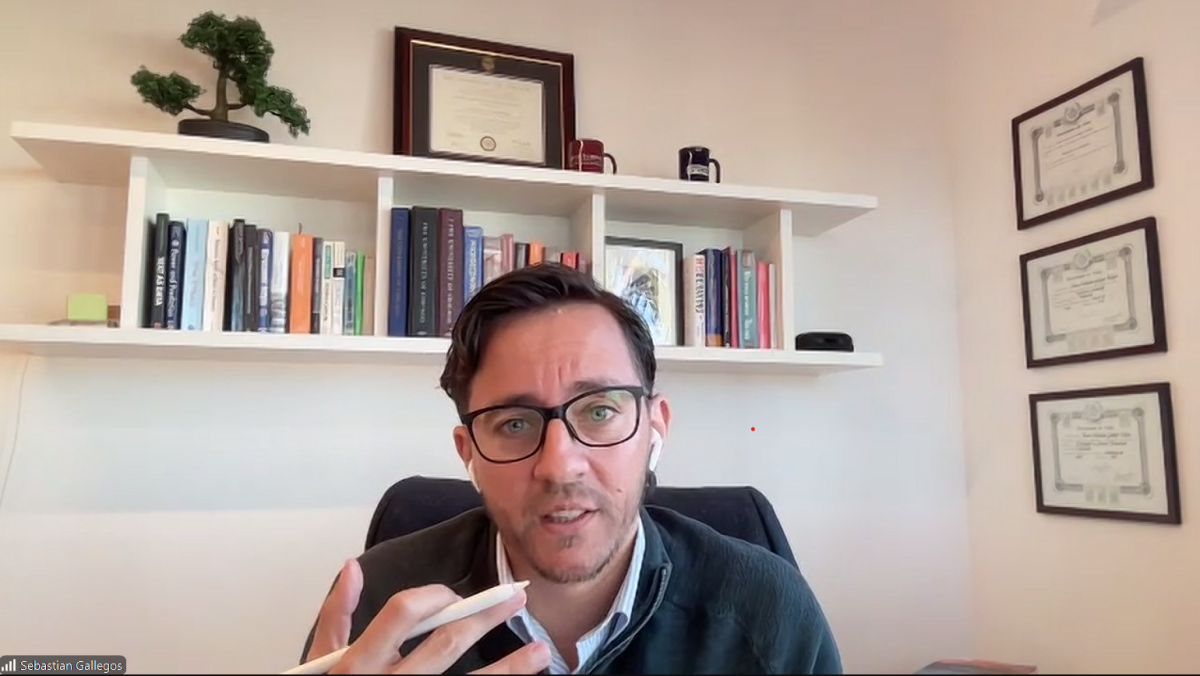
Can Second Chances Improve Outcomes? Short & Long Term Effects of Retaking High-Stakes Exams
(with Veronica Frisancho, CAF Development Bank)
*****
- September 5, 2024: Rigissa Megalokonomou (Monash University & GLO)
Video of the event
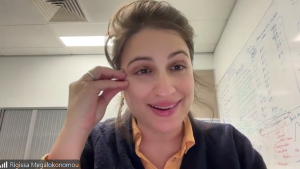
Gender Role Models in Education
*****
- August 1, 2024: Laura K. Gee (Tufts University and GLO)
Video of the event
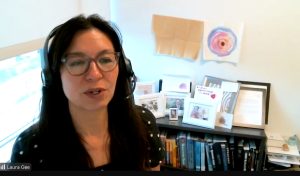
Who You Gonna Call? Gender Inequality in External Demands for Parental Involvement
(with K. Buzard, Syracuse University, and O. Stoddard, Brigham Young University)
*****
- July 4, 2024: Ather Akbari (Saint Mary’s University and GLO)
Video of the event

Religious affiliation and human capital returns in Canada
*****
- June 6, 2024: Alexander Kritikos (DIW Berlin and GLO)
Video of the event

Does gender of firm ownership matter? Female entrepreneurs and the gender pay gap
(with Mika Maliranta, Veera Nippala & Satu Nurmi)
Journal of Population Economics
Volume 37, article number 52, (2024)
*****
- May 2, 2024: Sandra Sequeira (LSE & GLO)
Video of the event

Zero-Sum Thinking and the Roots of US Political Divides
(with Sahil Chinoy, Nathan Nunn and Stefanie Stantcheva)
*****
- April 4, 2024: Ömer Özak (Southern Methodist University & GLO)
Video of the event

(De facto) Historical Ethnic Borders and Contemporary Conflict in Africa
(joint with Emilio Depetris-Chauvin)
*****
- March 7, 2024: Alexsandros Cavgias Martins Fraga (Ghent University & GLO)
Video of the event

Spoils of colonization: The impact of British colonial institutions on sexual prejudice
(joint with: Cristian Navarro, CEMFI)
*****
- February 1, 2024: Rania Gihleb (University of Pittsburgh & GLO)
Video of the event
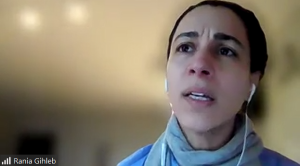
Religious Safety Nets and their Effects on Human Capital Accumulation
*****
- January 11, 2024: Matija Kovacic (Joint Research Centre, Ca’ Foscari University of Venice, and GLO)
Video of the event
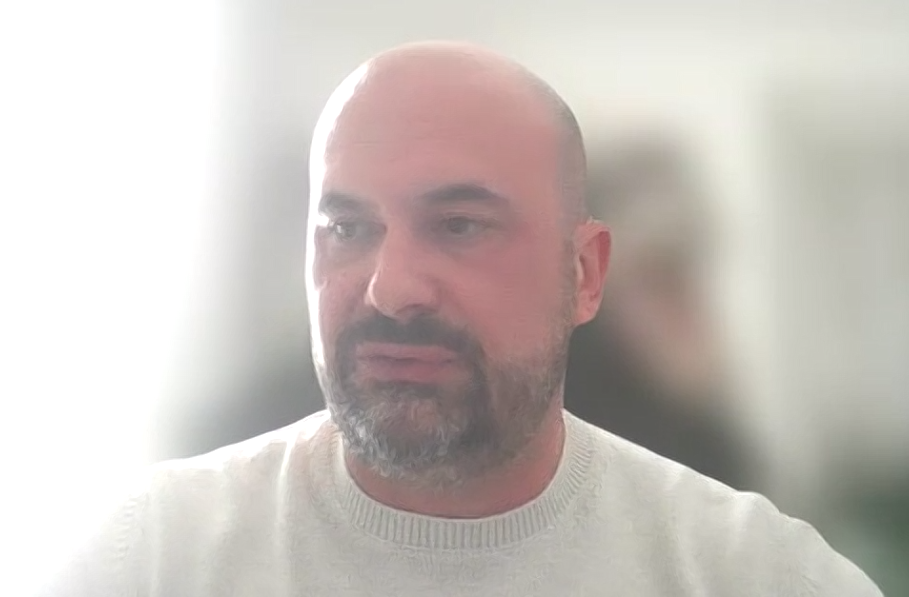
Social interactions, loneliness and collective health: A new angle on an old debate
*****
- December 7, 2023: Bansi Malde (University of Kent and GLO)
Video of the event
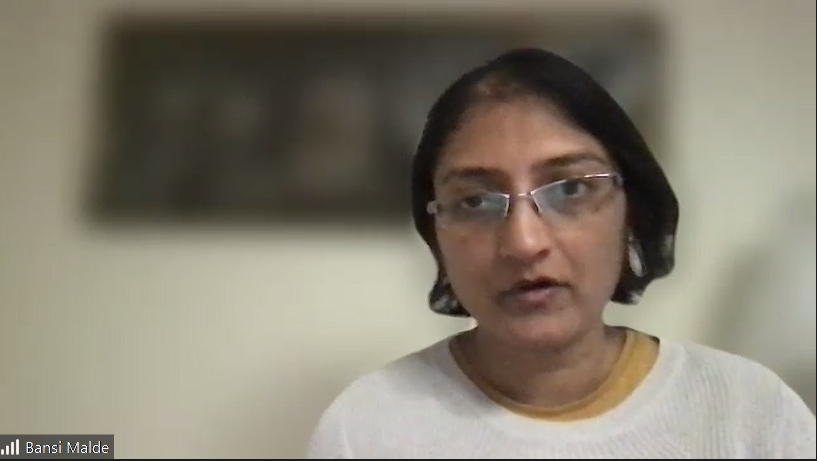
Personalized Information Provision and the Take-Up of Government Benefits: Experimental Evidence from India
(with Amrit Amirappu, Irma Clots-Figueras, Anirban Mitra, Debayan Pakrashi and Zaki Wahhaj)
*****
- November 2, 2023: Nicola Coniglio (University of Bari “Aldo Moro” and GLO)
Video of the event
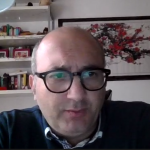
The most precious resource: time allocation of immigrants in the U.S.
(with Rezart Hoxhaj and Hubert Jayet)
*****
- October 5 & September 7, 2023: Cancelled
- August 3, 2023: Summer Break
*****

- July 6, 2023: Elena Nikolova (IOS-Regensburg and GLO)
Video of the event

Historical climate risk and international migration
(paper joint with Miriam Manchin, UCL/Politecnico di Milano, and Alex Newnham, Université Paris Saclay)
*****
- June 1, 2023 (Thursday): Paul Dower (University of Wisconsin- Madison and GLO)
Video of the event
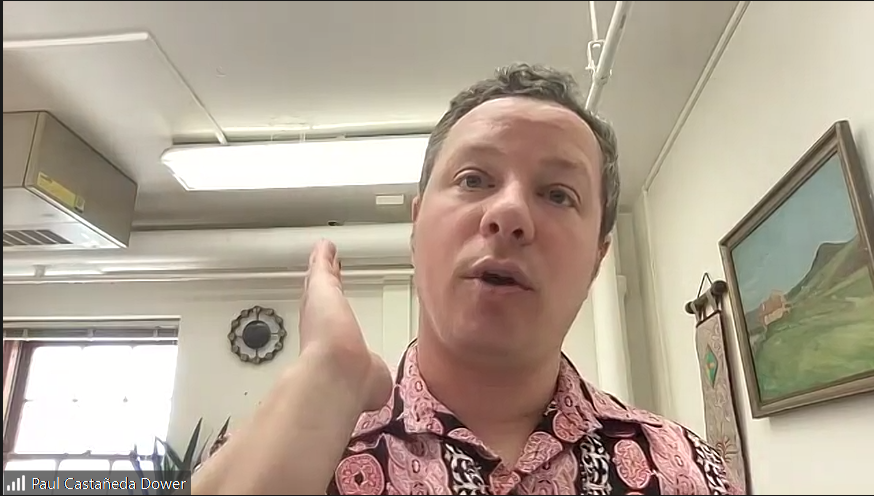
Did the Cold War Produce Development Clusters in Africa?
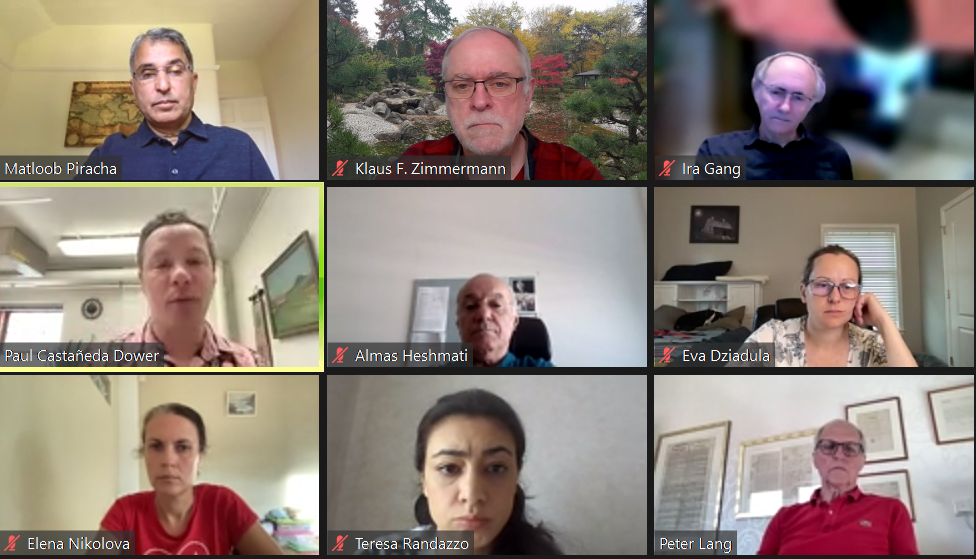
*****
- May 4, 2023 (Thursday): Eva Dziadula (University of Notre Dame and GLO)
Video of the event

The Gendered Impact of In-State Tuition Policies on Undocumented Immigrants’ College Enrollment, Graduation, and Employment
(paper with Grace Condon, Cynthia Bansak, and Susan Averett)

*****
- April 6, 2023 (Thursday): Guanyi Yang (Colorado College and GLO)
Video of the event
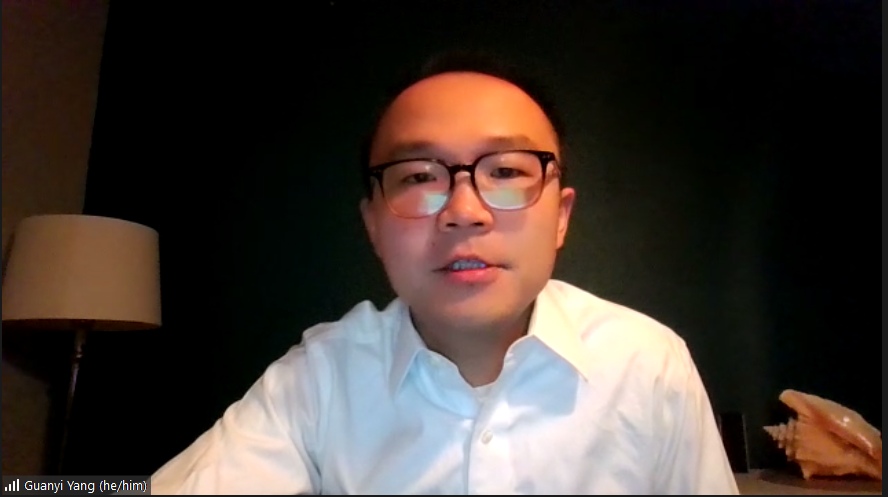
Better Late Than Never:
Aggregate Impact of Intermittent College Enrollment and Tuition Subsidies
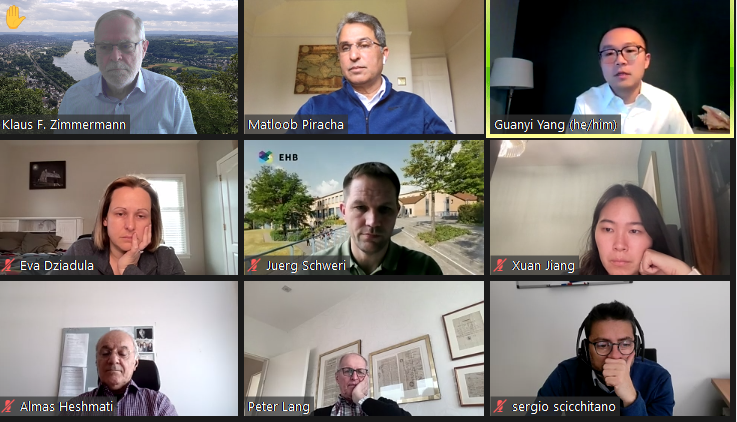
*****
- March 2, 2023 (Thursday): Jan Fidrmuc (Lille University and GLO)
Video of the event
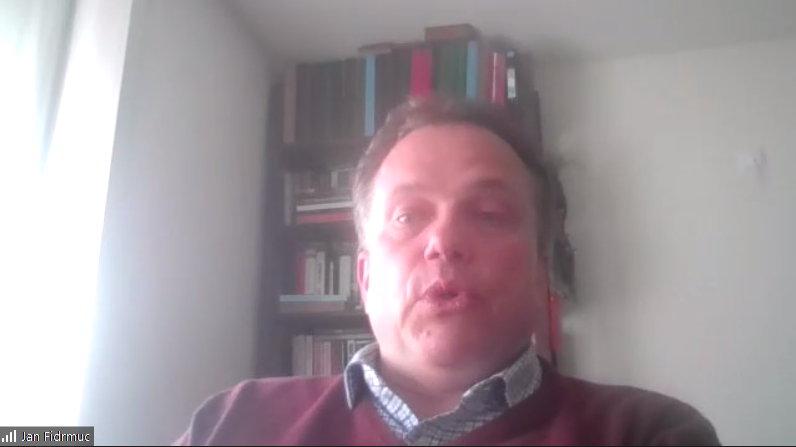
Who Believes in Conspiracy Theories, and Why?
(with Olga Zajkowska)

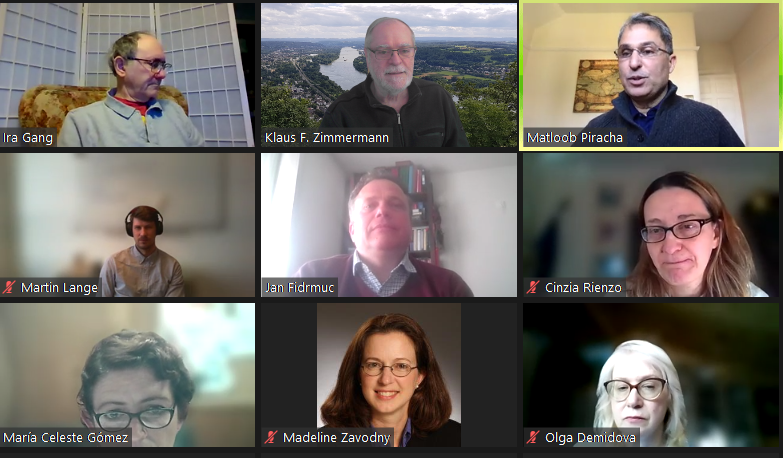
*****
- February 2, 2023 (Thursday): Sophie Wang (Central University of Finance and Economics, Beijing, and GLO)
Video of the event.
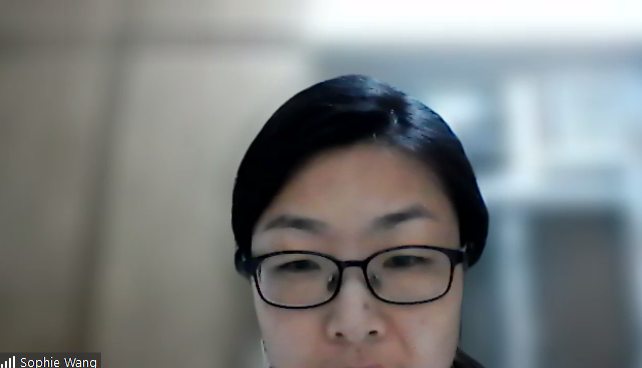
Are Grandparents a Good Substitute for Parents as the Primary Caregiver?
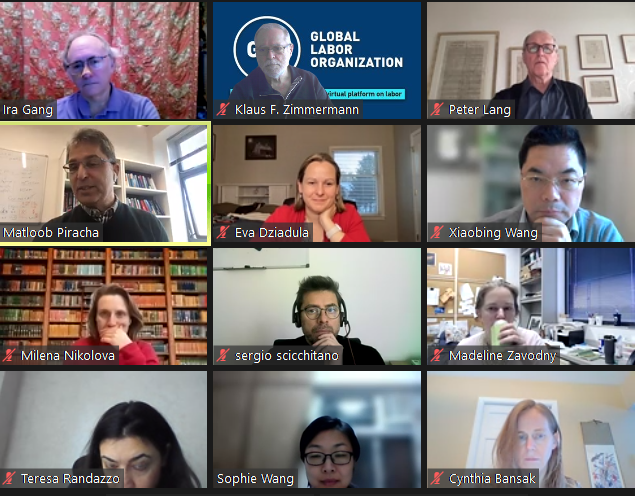
*****
- January 12, 2023 (Thursday): Cinzia Rienzo (University of Brighton & GLO).
Video of the event.
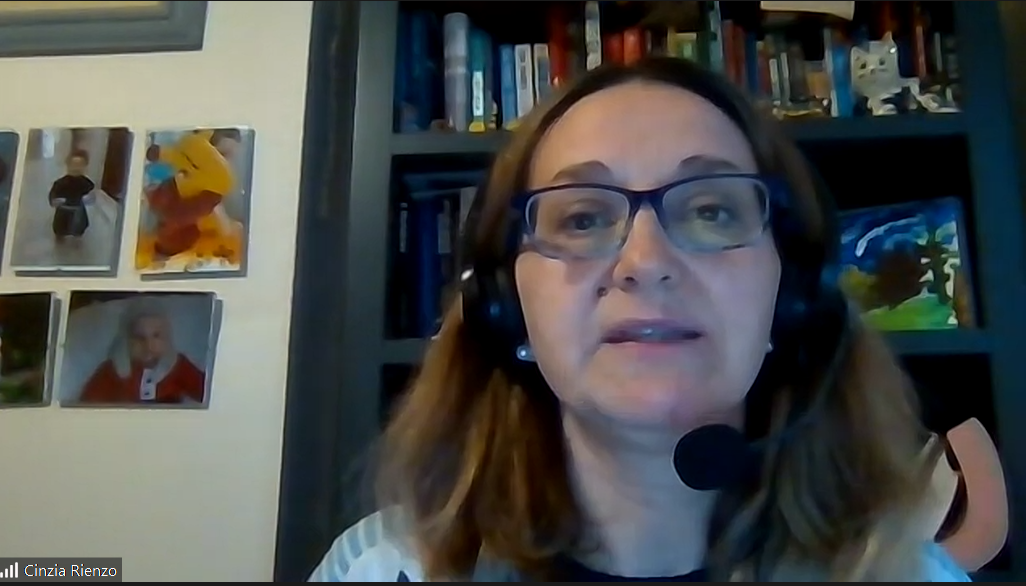
Unions and Immigrants’ Wages in the Unites States

*****
- December 8, 2022 (Thursday): December BREAK
- November 3, 2022 (Thursday): Colin Green (Norwegian University of Science and Technology and GLO). Video of the event.
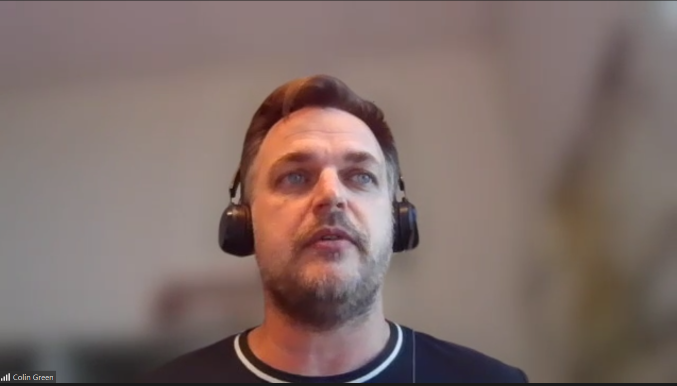
Immigrant Peers and Foreign Language Acquisition
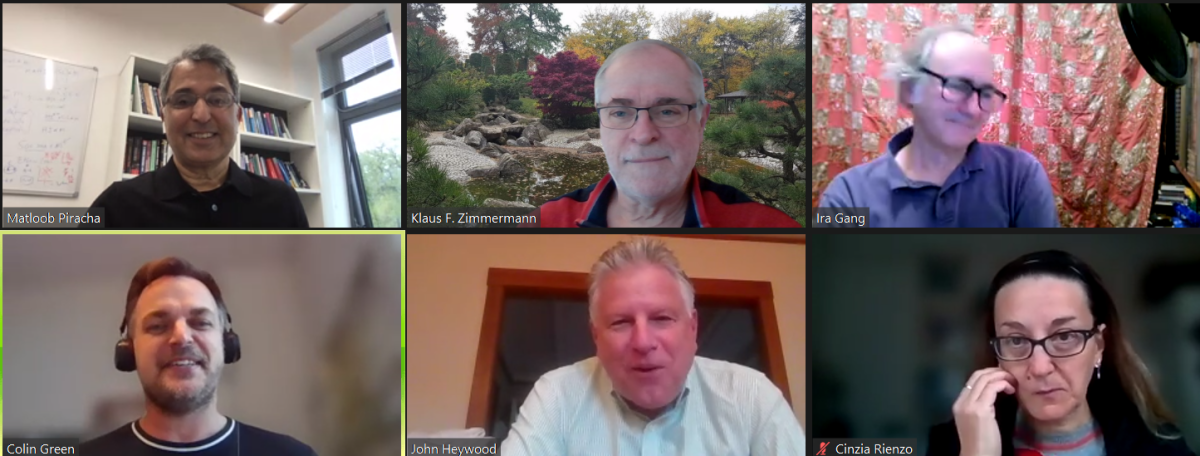
*****
- October 6, 2022 (Thursday): Cristiano Perugini (University of Perugia and GLO)
Video of the event.
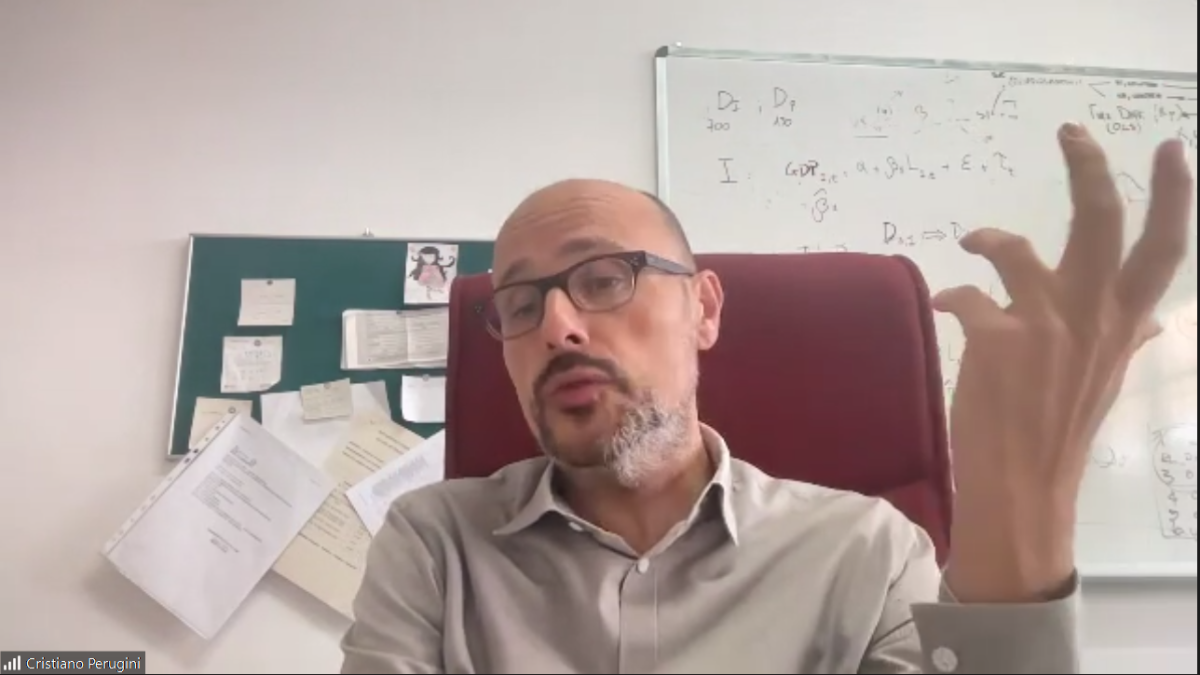
Non-standard employment and rent sharing
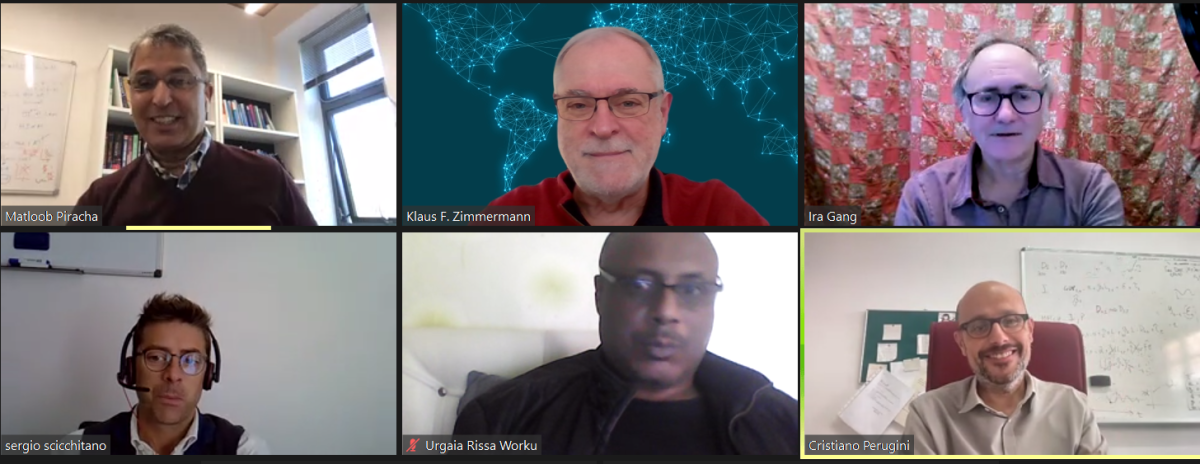
***
- September 1, 2022 (Thursday): Ashwini Deshpande (Ashoka University and GLO)
(Co-authored with Shantanu Khann and Daksh Walia). VIDEO of the event.
See also GLO DP 1311.
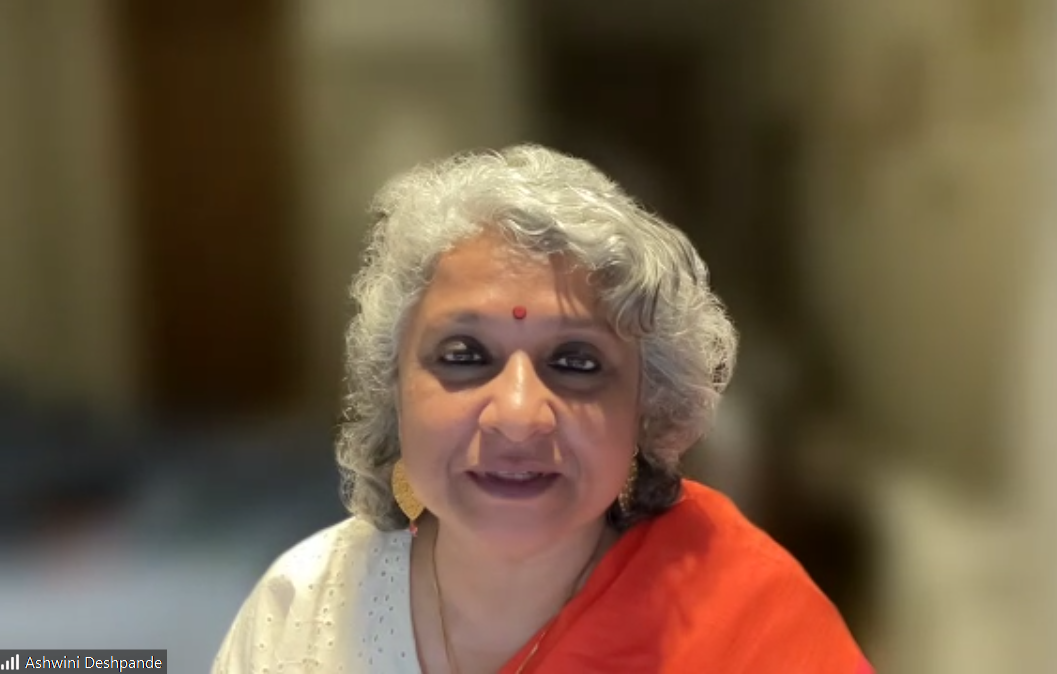
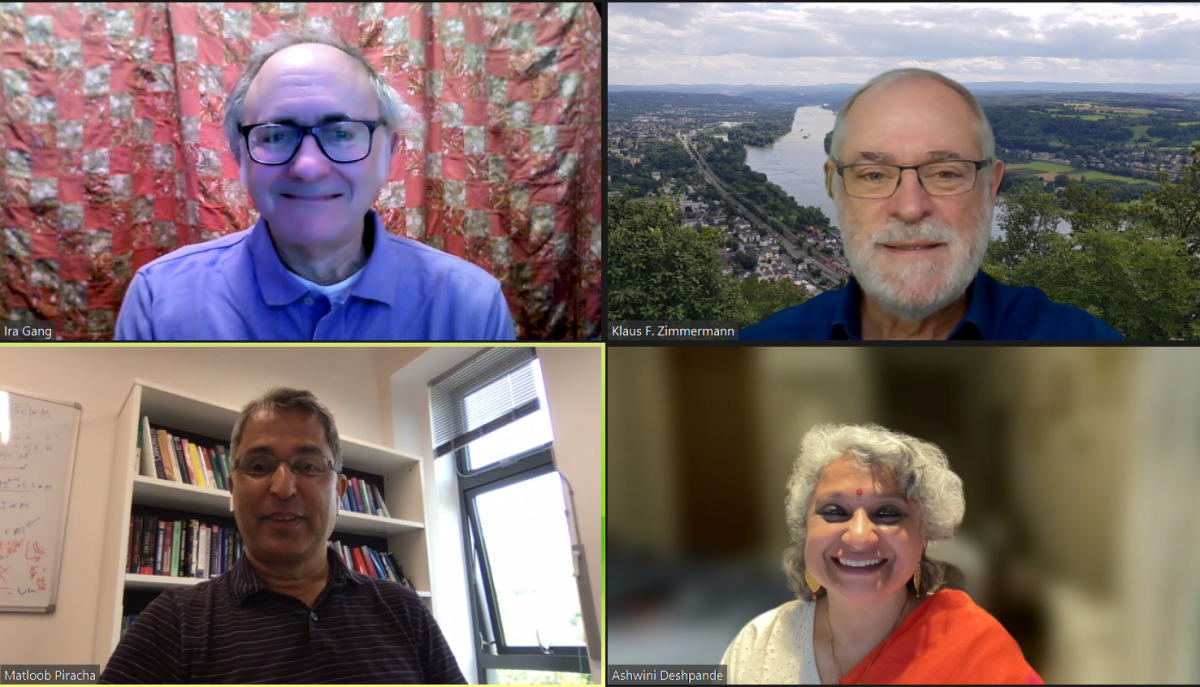
The Impact of Self-Help Groups on Women’s Labour Force Participation and Employment in India
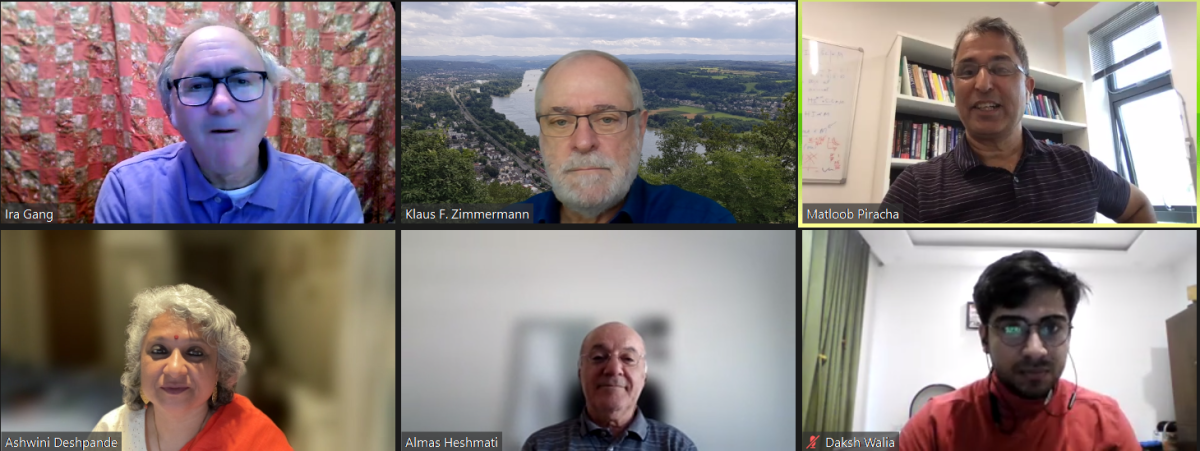
***
- August 4, 2022: Summer break
- July 7, 2022: Madeline Zavodny (University of North Florida and GLO) and Pia Orrenius (Federal Reserve Bank of Dallas and GLO)
Report and Video
U.S. Immigration Enforcement Policies and Business Dynamics
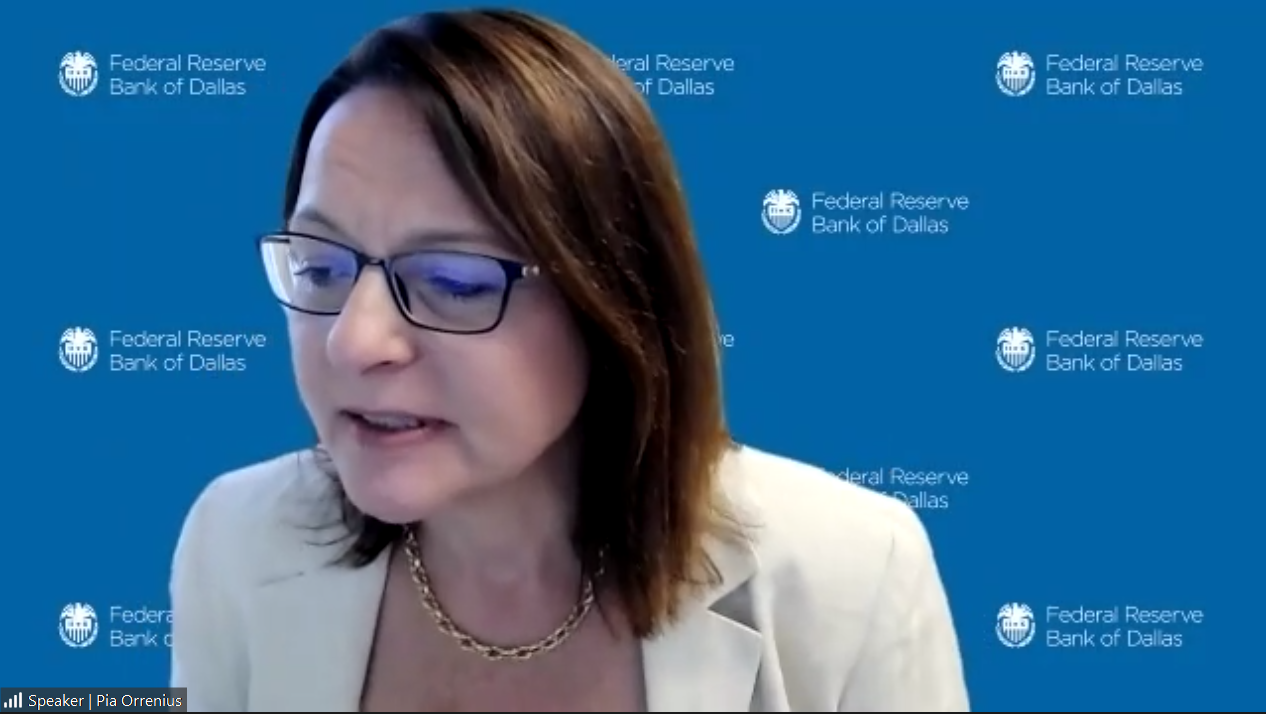
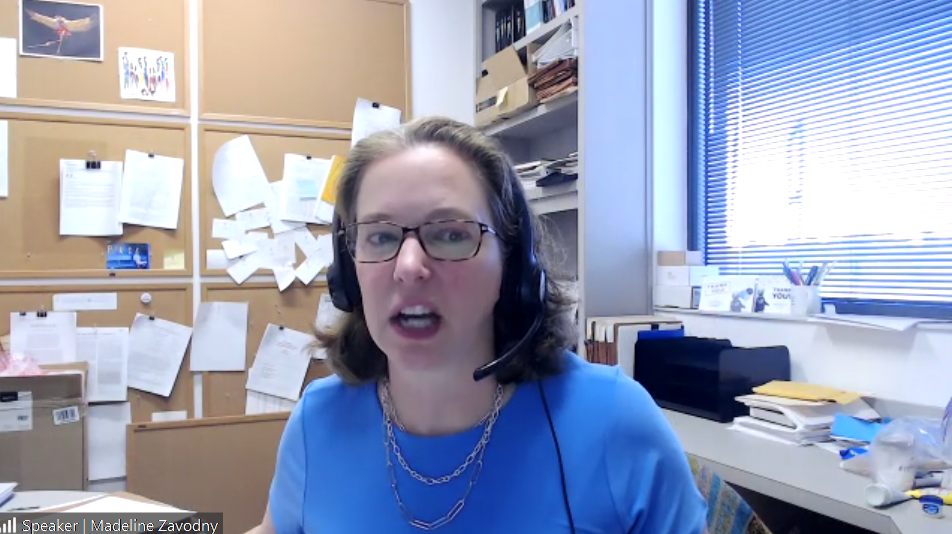
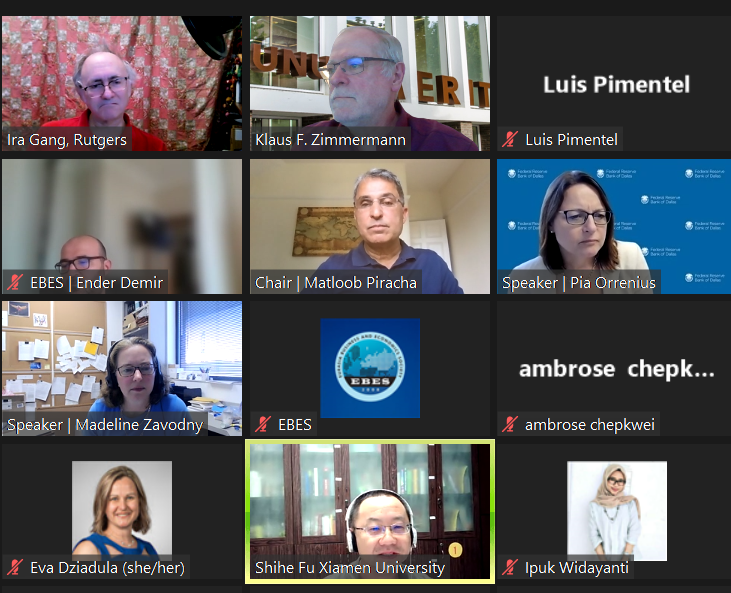
***
- June 2, 2022: Ralitza Dimova (Manchester University and GLO)
Video & Report
Behavioural Responses to a Man-made Disaster: Insights from a Natural Experiment
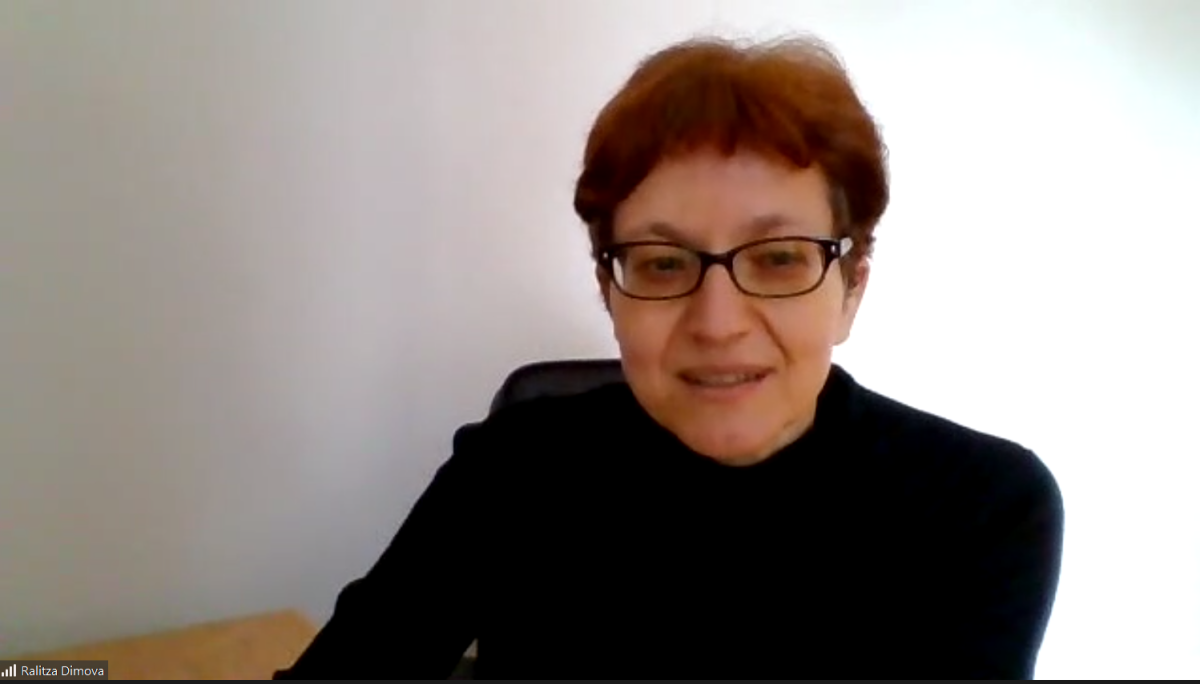
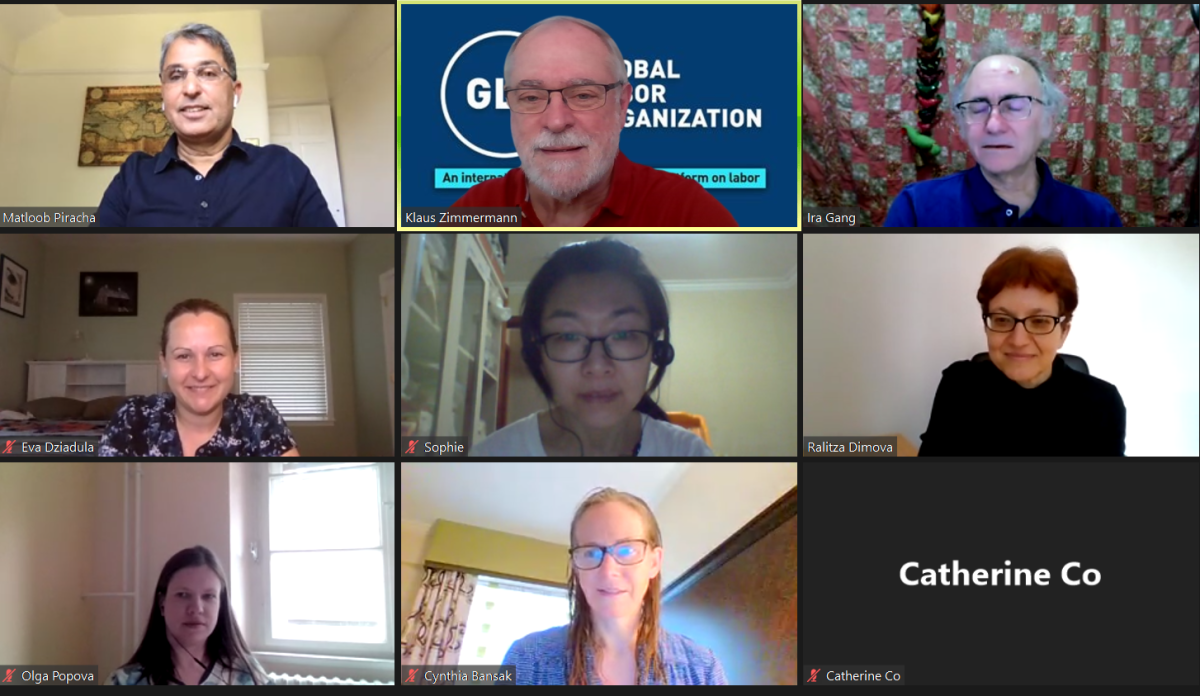
***
Labor Market Power and Wage Determination
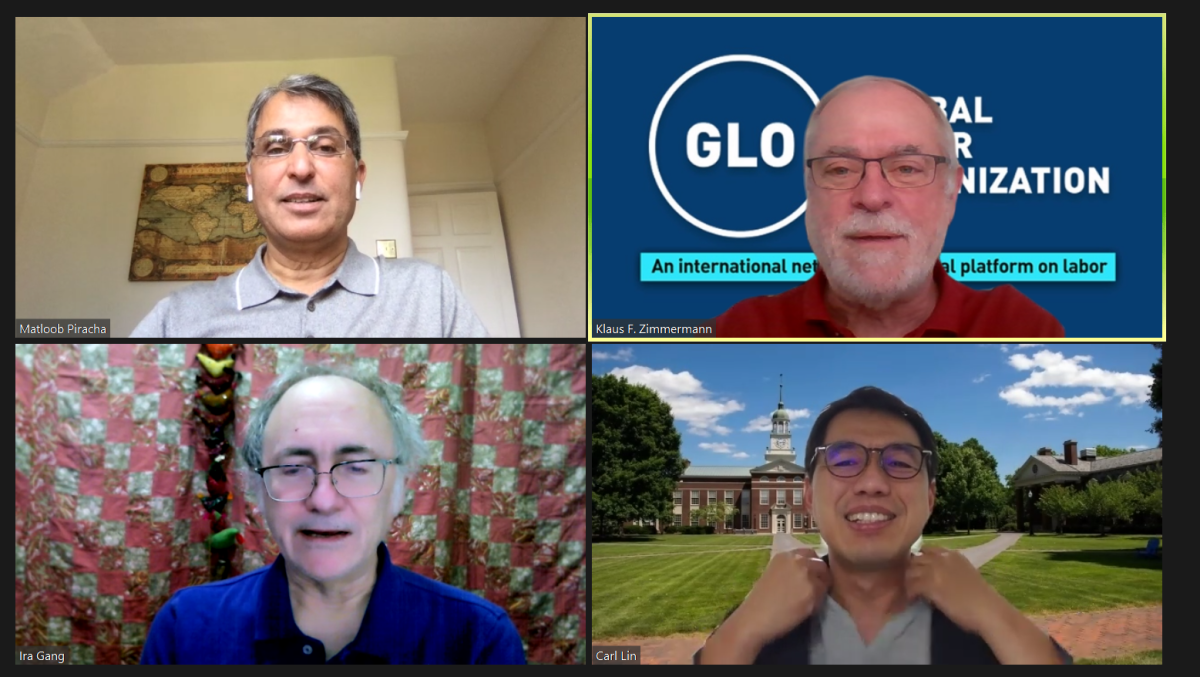
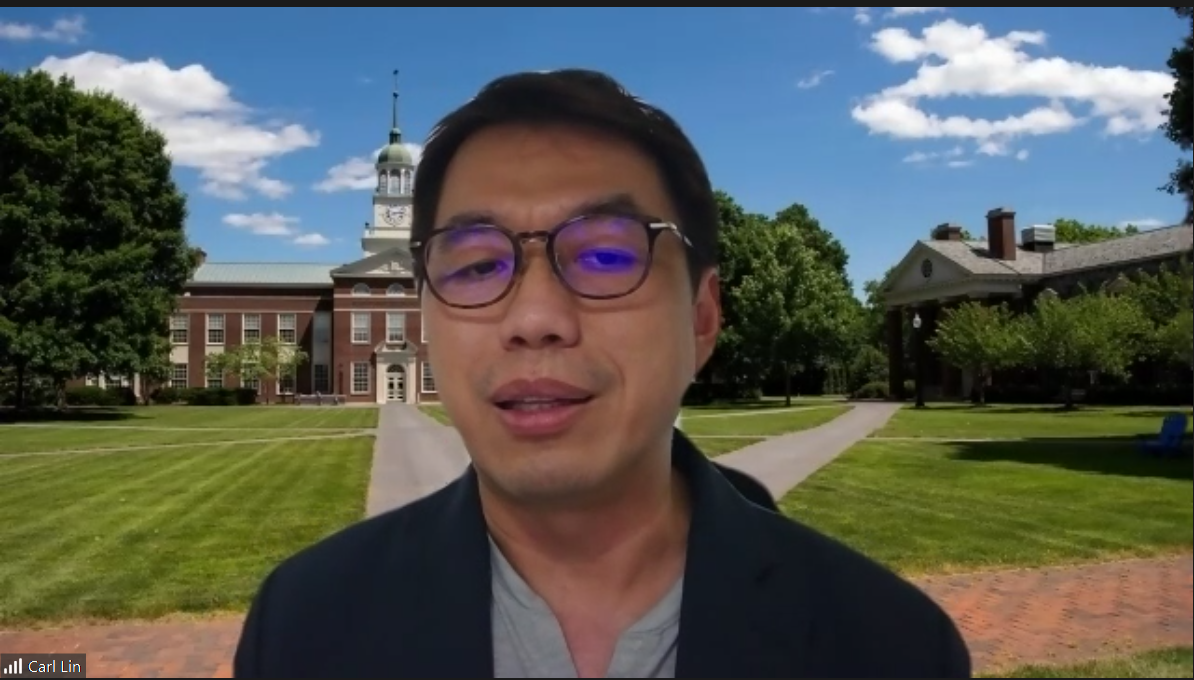

***
- April 7, 2022: Sarah Pearlman (Vassar College and GLO)
Video & Report.
Measles, Mexico and Labor Markets
(with Alicia Atwood)
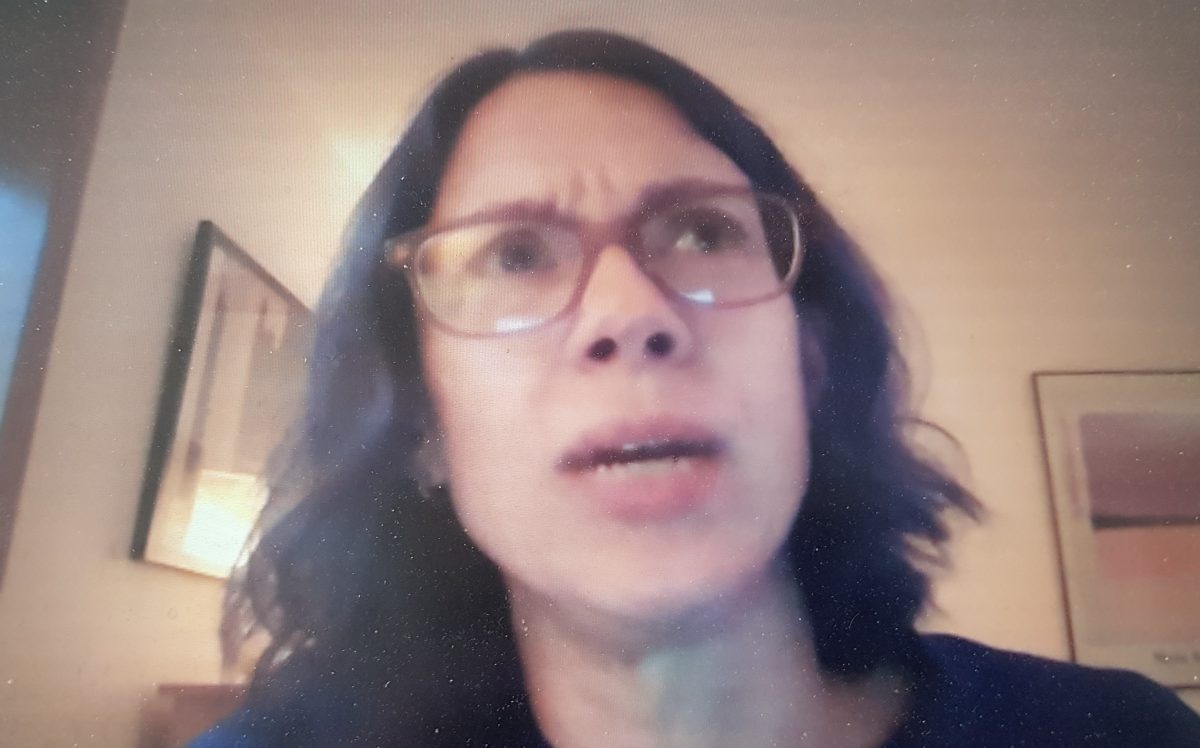
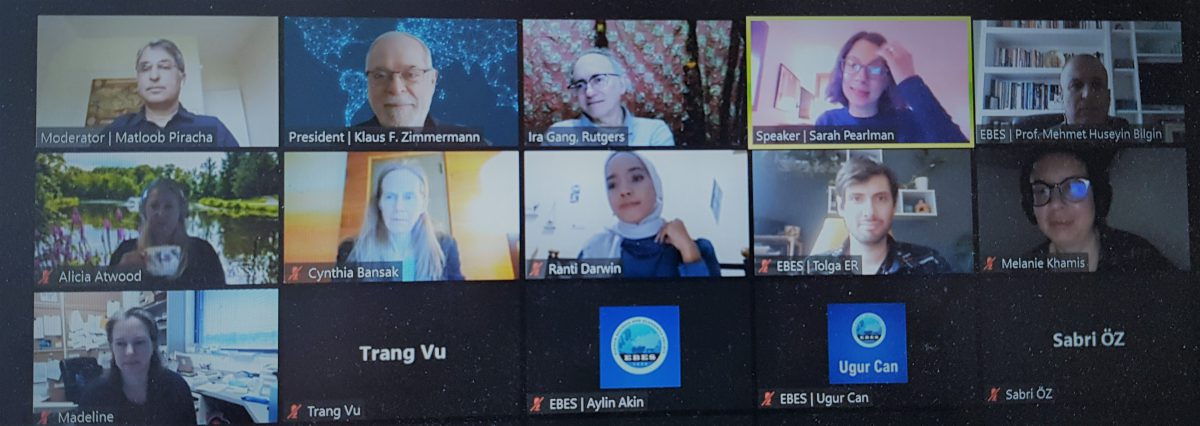
***
- March 3, 2022: Maria Rosales-Rueda (Rutgers University and GLO)
Video & Report.
Does Delivery of Primary Health Care Improve Birth Outcomes? Evidence from the Rollout of Community Health Centers
Chair: Ira Gang (Rutgers University and GLO)
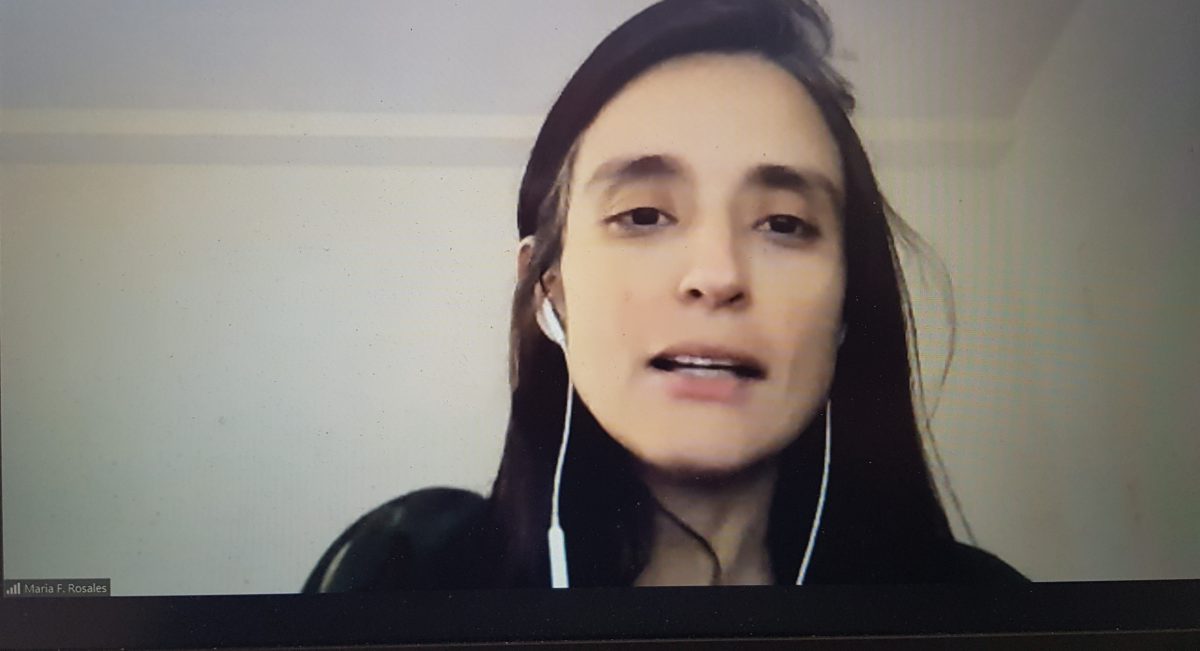

***
- February 3, 2022: Michael Coon (University of Tampa and GLO)
Video & Report.
Border Fencing, Migrant Flows, and Crossing Deaths
(with Cynthia Bansak, St. Lawrence University & Abigail Blanco, Bellarmine University)
Chair: Ira Gang (Rutgers University and GLO)
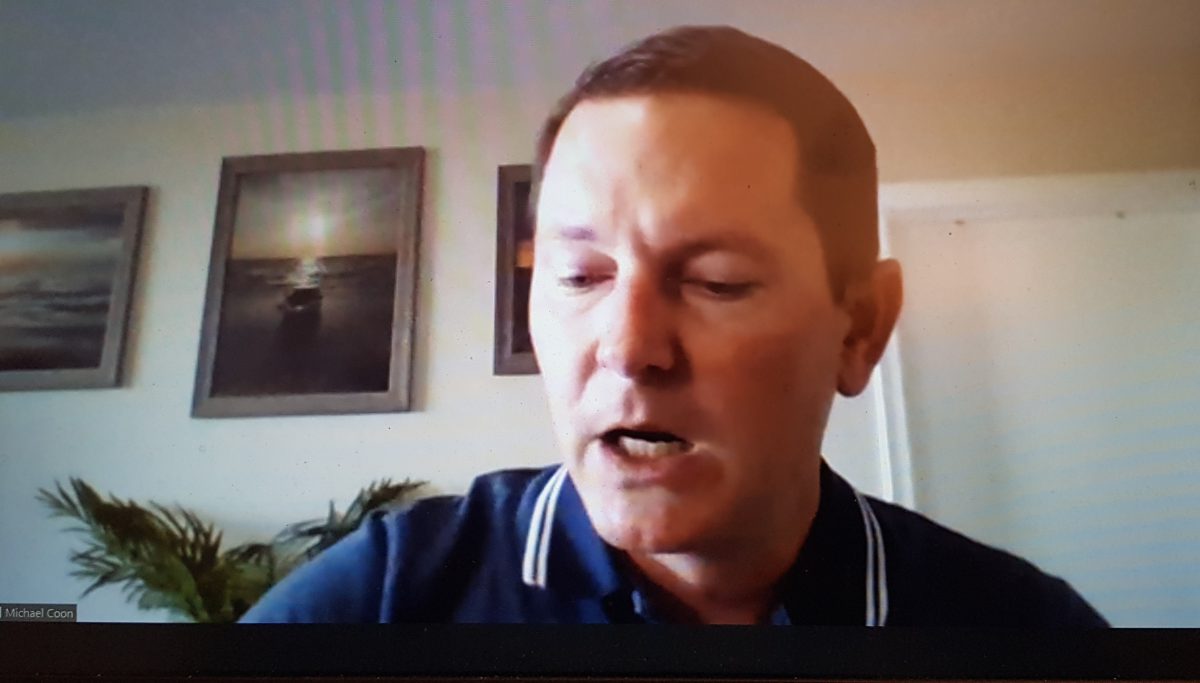
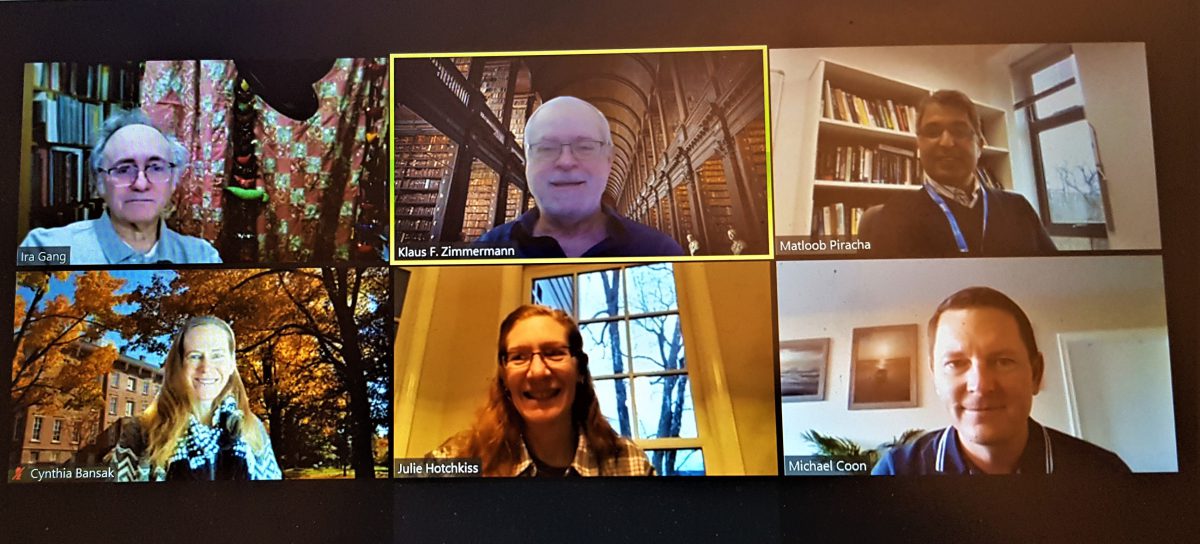
***
- January 6, 2022: Claire Naiditch (University of Lille and GLO)
Video & Report.
Migrant smuggling to Europe: a matching model
(with Olivier Charlot and Radu Vranceanu)
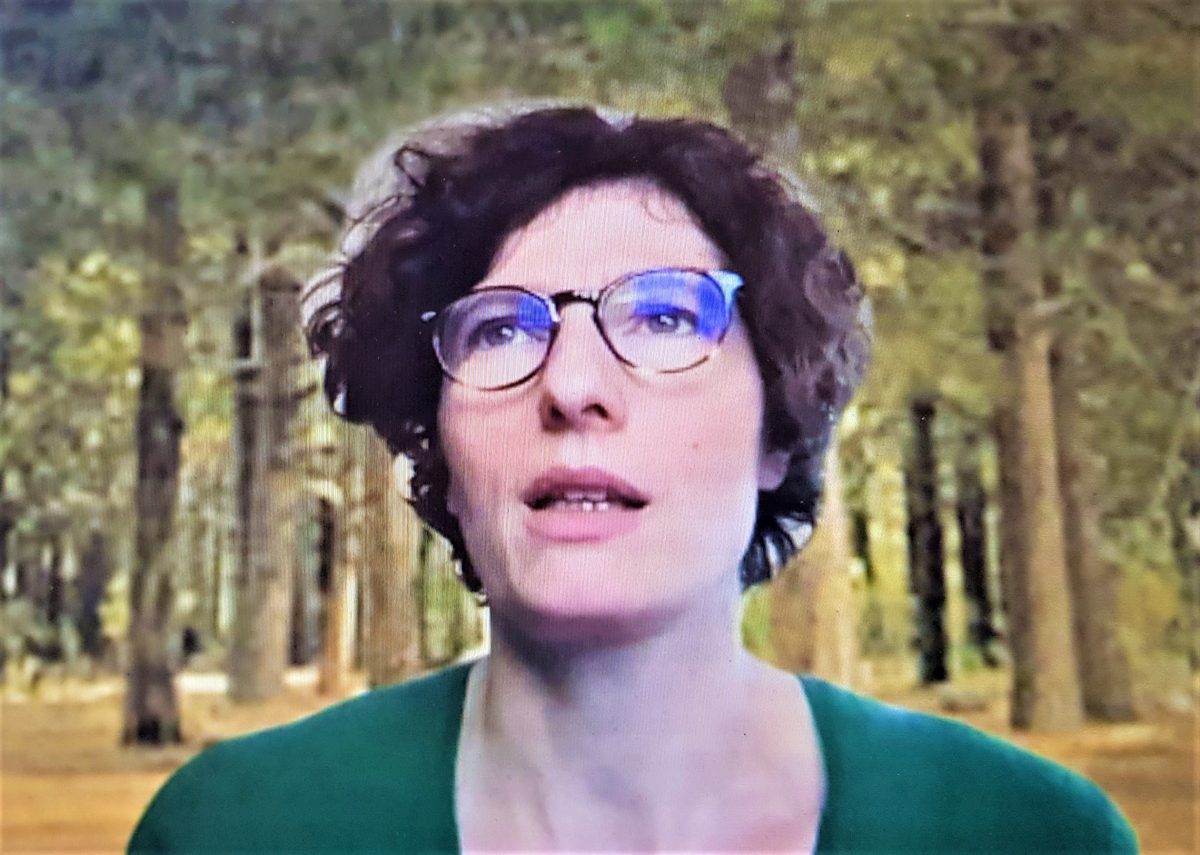
***
2021 Speakers
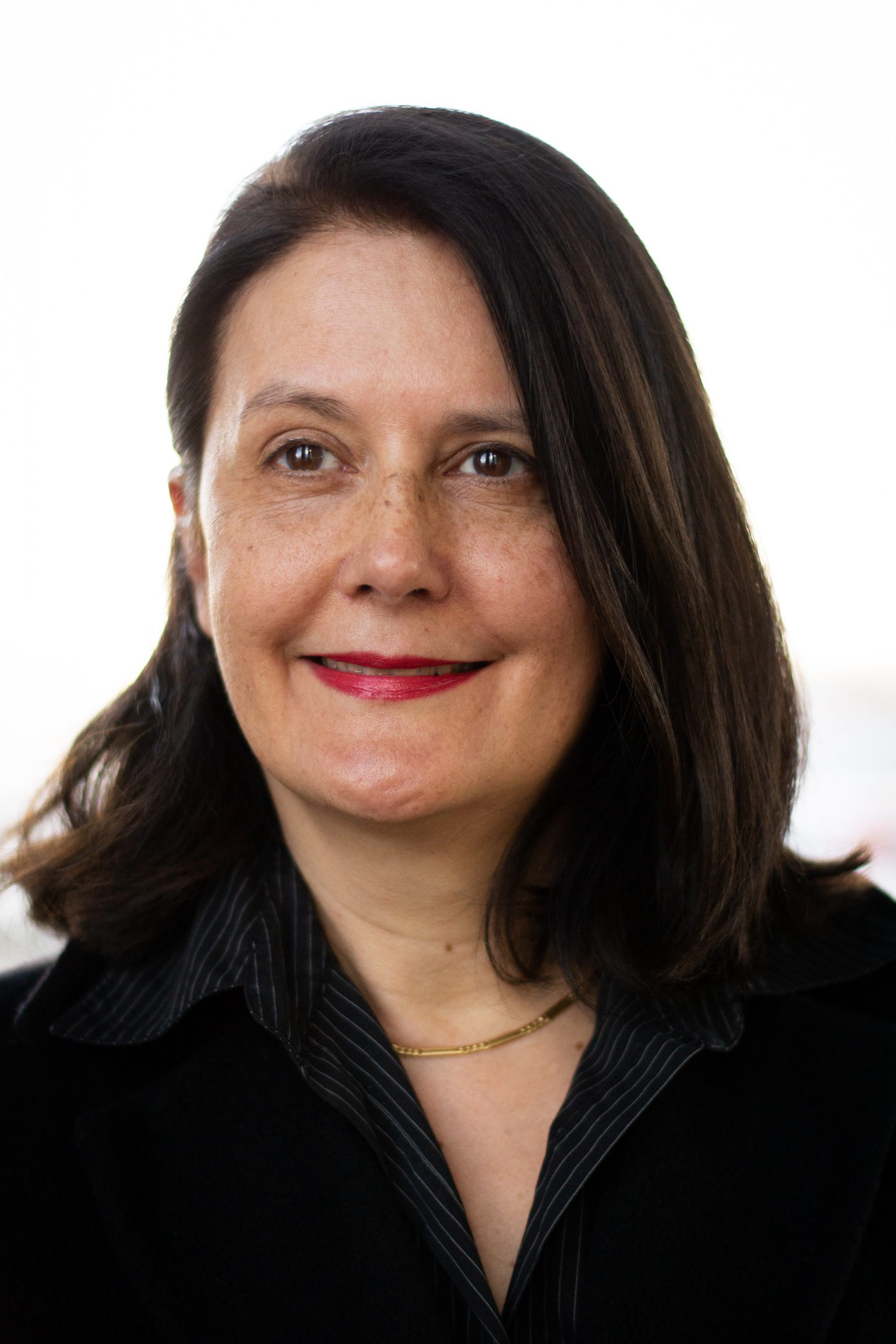
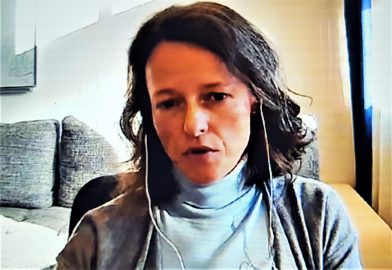
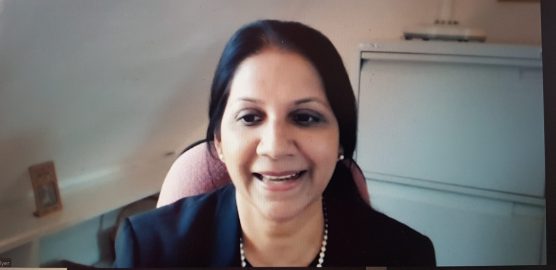

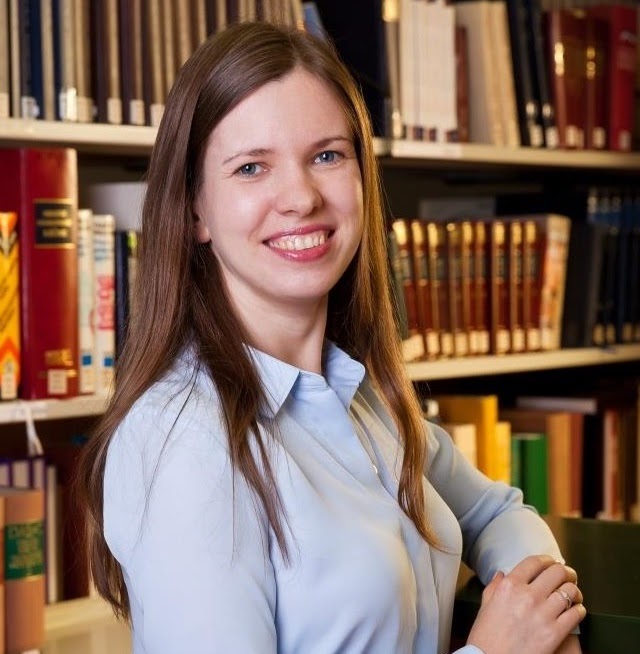

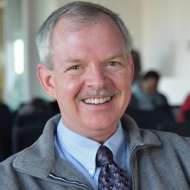
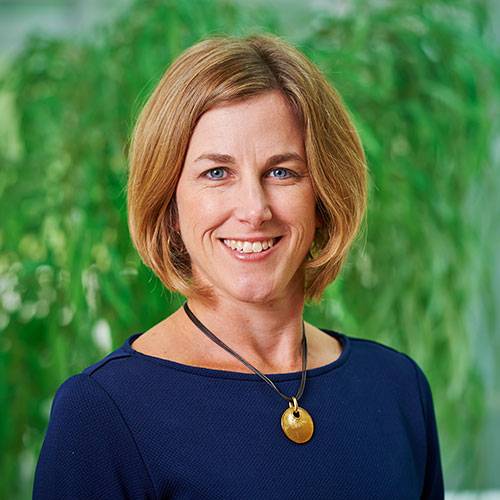
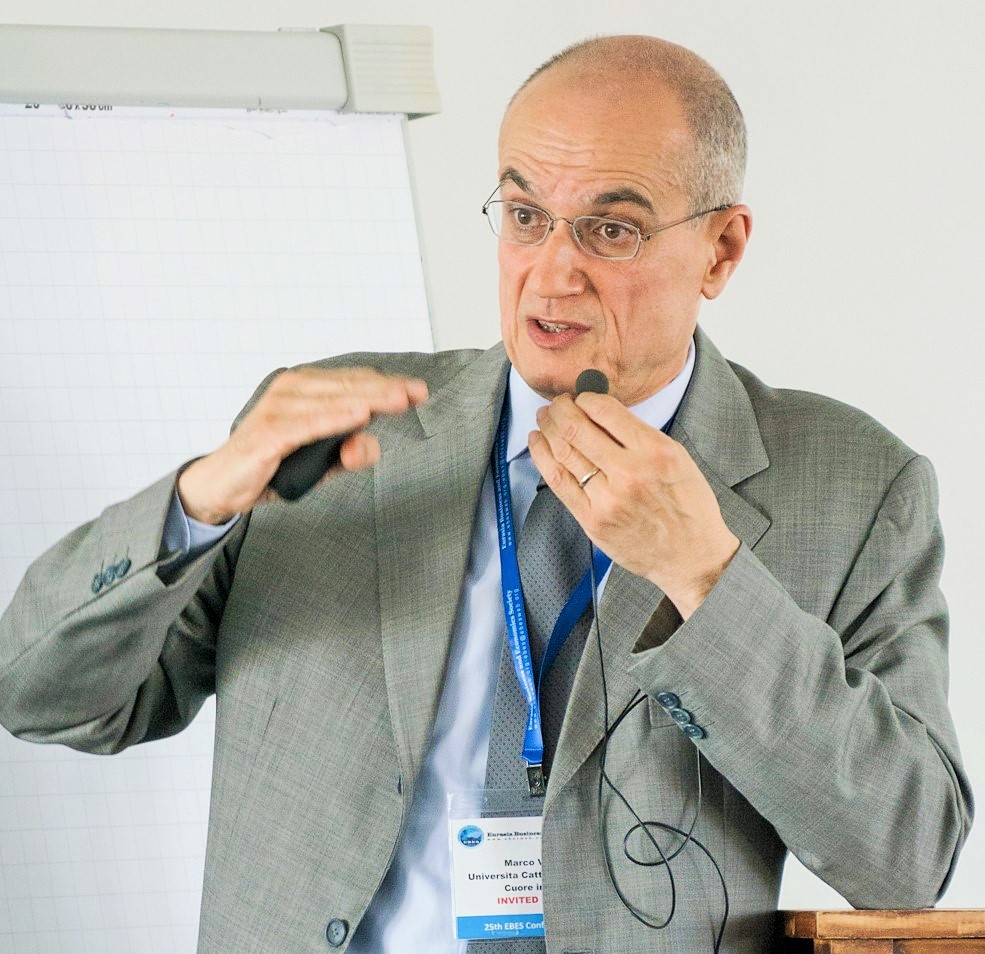

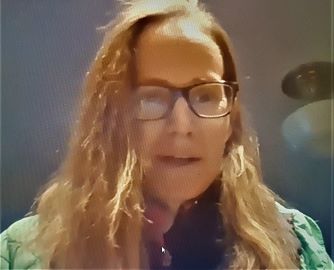
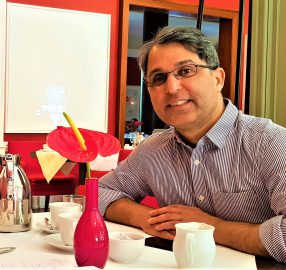
- December 2, 2021: Mathilde Maurel (CNRS, FERDI and GLO)
Video & Report.
A new approach for evaluation of the economic impact of decentralized electrification projects (with J.C. Berthélémy)
***
- November 4, 2021: Karin Mayr-Dorn (University of Linz and GLO)
Video & Report.
Trade diversion and labor market adjustment: Vietnam and the U.S.-China trade war
***
- October 7, 2021: Sriya Iyer (University of Cambridge and GLO)
Joint event with EBES-37: Plenary Speech of Sriya Iyer chaired by Olga Popova, VIDEO & Report.
Religion and Mental Health
***
- September 2, 2021: Magnus Lodefalk (Örebro University and GLO)
Report & Video of the event.
New Work, Exiting Work and Artificial Intelligence
***
- August 5, 2021: Break.
***
- July 8, 2021: Olga Popova, Institute for East and Southeast European Studies (IOS) & GLO
Report, presentation slides & Video of the event. Published.
Does weather sharpen income inequality in Russia?
Joint work with Vladimir Otrachshenko (Justus Liebig University Giessen).
Abstract
Using subnational panel data, this paper analyzes how hot and cold extreme temperatures and precipitation affect economic activity and income distribution in Russia. We account for the intensity of exposure to extreme temperatures by analyzing the impacts of both single and consecutive days with extreme temperature, i.e., heat waves and cold spells, and examine several labor market channels behind those effects. We find that consecutive extremely hot days decrease regional GDP per capita but do not affect income inequality. Poor regions are affected by extreme temperatures relatively more than rich regions. These effects occur because of reallocation of labor from employment to unemployment, an increase in prices in poor regions, and to some extent because of changes in the industrial employment structure, while relative wages are not affected. Extremely cold days, both single and consecutive, as well as extreme precipitation have a limited impact on economic activity and income distribution.
***
- June 3, 2021: Chiara Rapallini, Università degli Studi di Firenze and GLO
Report & Video of the event.
Personality Traits and Earnings: A Meta-Analysis
HIGHLIGHTS:
1. Provides a meta-analytical review of the empirical literature on the relationship between personal earnings and the Big Five personality traits.
2. Based on 936 partial effect sizes collected from 65 peer-reviewed articles published between 2001 and 2020.
3. Finds that personal earnings are positively associated with the traits of Openness, Conscientiousness, and Extraversion, and negatively associated with the traits of Agreeableness and Neuroticism.
4. Meta-regression estimates suggest that the results of the primary literature are at least partially driven by the characteristics of the study design and, in particular, that the inclusion of individual controls like the level of education attained or/and a proxy for cognitive abilities helps to explain study heterogeneity.
GLO Discussion Paper No. 902 [rev.]
The Big Five Personality Traits and Earnings: A Meta-Analysis – Download PDF
by Alderotti, Giammarco & Rapallini, Chiara & Traverso, Silvio
***
- May 6, 2021: Keith Bender, University of Aberdeen and GLO
News – report of the event. Video of the Seminar.
Employment Contracts and Stress
GLO Discussion Paper No. 838
Employment Contracts and Stress: Experimental Evidence – Download PDF
Forthcoming JEBO.
by Allan, Julia L. & Andelic, Nicole & Bender, Keith A. & Powell, Daniel & Stoffel, Sandro & Theodossiou, Ioannis
***
- April 8, 2021: Nicole Simpson, Colgate University and GLO
News – report of the event. Video of Seminar. Presentation slides.
Single Mothers and Tax Credits: Insurance Without Disincentives?
***
- March 5, 2021: Marco Vivarelli, Università Cattolica del Sacro Cuore and GLO
News – report of the event. Video of Seminar. Presentation slides. GLO Discussion Paper No. 823.
May AI Revolution be Labour-friendly? Some Micro Evidence from the Supply Side
***
- February 5, 2021: Pedro Martins, Queen Mary University of London and GLO
News – report of the event. Video of Seminar. Presentation slides.
Employer Collusion and Employee Training
Based on joint work with Jonathan P. Thomas, University of Edinburgh.
***
- January 7, 2021: Cynthia Bansak, St. Lawrence University and GLO
News – report of the event. Video of Seminar. Presentation slides.
Endogamous Marriage among Immigrant Groups: The Impact of Deportations under Secure Communities
Based on joint work with Sarah Pearlman.
GLO Discussion Paper 756: Endogamous Marriage among Immigrant Groups: The Impact of Deportations under Secure Communities – Download PDF
by Bansak, Cynthia & Pearlman, Sarah
***
2020 Speakers


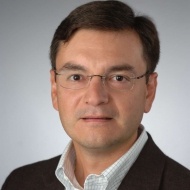





- December 3, 2020: John P. de New, Melbourne Institute of Applied Economic and Social Research, University of Melbourne, and GLO
News – report of the event. Video of Seminar.
Dreaming Big: Higher Occupational Aspirations from Persistent and Advantaged Kids
Based on joint work with Sonja C de New and Clement C Wong.
***
- November 5, 2020: Ira Gang, Rutgers University and GLO
Associate Editor of the Journal of Population Economics
News – report of the event. Video of Seminar.
Schooling Forsaken or Not? Education and Migration
Based on joint work with Gil Epstein and Ilhom Abdulloev:
GLO Discussion Paper 709: Job Status, International Migration and Educational Choice – Download PDF by Abdulloev, Ilhom & Epstein, Gil S. & Gang, Ira N.
GLO Discussion Paper 641: Schooling Forsaken: Education and Migration – Download PDF by Abdulloev, Ilhom & Epstein, Gil S. & Gang, Ira N.
Migration and Forsaken Schooling in Kyrgyzstan, Tajikistan, and Uzbekistan, published n IZA Journal of Development and Migration, 11(1). https://doi.org/10.2478/izajodm-2020-0004
Changes in the Forsaken Schooling and Migration Relationship in Tajikistan (Chapter 10), in Brain Drain vs Brain Circulation (Central Asia), 2020
***
- October 1, 2020: Alfonso Flores-Lagunes, Syracuse University and GLO
Presentation slides & news – report of the event. Video of the seminar.
The Effects of Vietnam-Era Military Service on the Long-Term Health of Veterans
Based on a joint paper with Xintong Wang and Carlos A. Flores on “The Effects of Vietnam-Era Military Service on the Long-Term Health of Veterans: A Bounds Analysis”
***
- September 3, 2020: Kompal Sinha, Macquarie University and GLO
Associate Editor of the Journal of Population Economics
GLO Cluster Lead “Development, Health, Inequality and Behavior”
Presentation Slides & News. Video of Seminar.
Paid Parental Leave and Maternal Mental Health
Related paper: The presentation of Kompal Sinha is based on a joint paper with Anam Bilgrami and Henry Cutler of the Centre for the Health Economy, Macquarie University, on “The impact of introducing a national scheme for Paid Parental Leave on maternal mental health outcomes“, forthcoming Health Economics.
***
- August 6, 2020: Sergei Guriev, Sciences Po, Paris, and GLO.
Presentation News. Video of seminar.
The Political Economy of Populism
Related paper: Sergei Guriev and Elias Papaioannou,
The Political Economy of Populism. PDF
Draft prepared for the Journal of Economic Literature.
***
- July 9, 2020: Marie Claire Villeval, (CNRS & GLO)
Presentation News. Video of seminar.
Teaching Norms in the Streets
***
- June 11, 2020: Danny Blanchflower, Dartmouth College, GLO Research Director Presentation slides. Video of seminar. Report of the event.
Despair, Unhappiness and Age
Related papers:
- GLO Discussion Paper No. 561
by Blanchflower, David G. & Clark, Andrew E.
Children, Unhappiness and Family Finances – Download PDF
Published online 2020: Journal of Population Economics. Free Readlink. - GLO Discussion Paper No. 530
by Blanchflower, David G.
Is Happiness U-shaped Everywhere? Age and Subjective Well-being in 145 Countries – Download PDF
Published online 2020: Journal of Population Economics. Free Readlink.
Ends;
